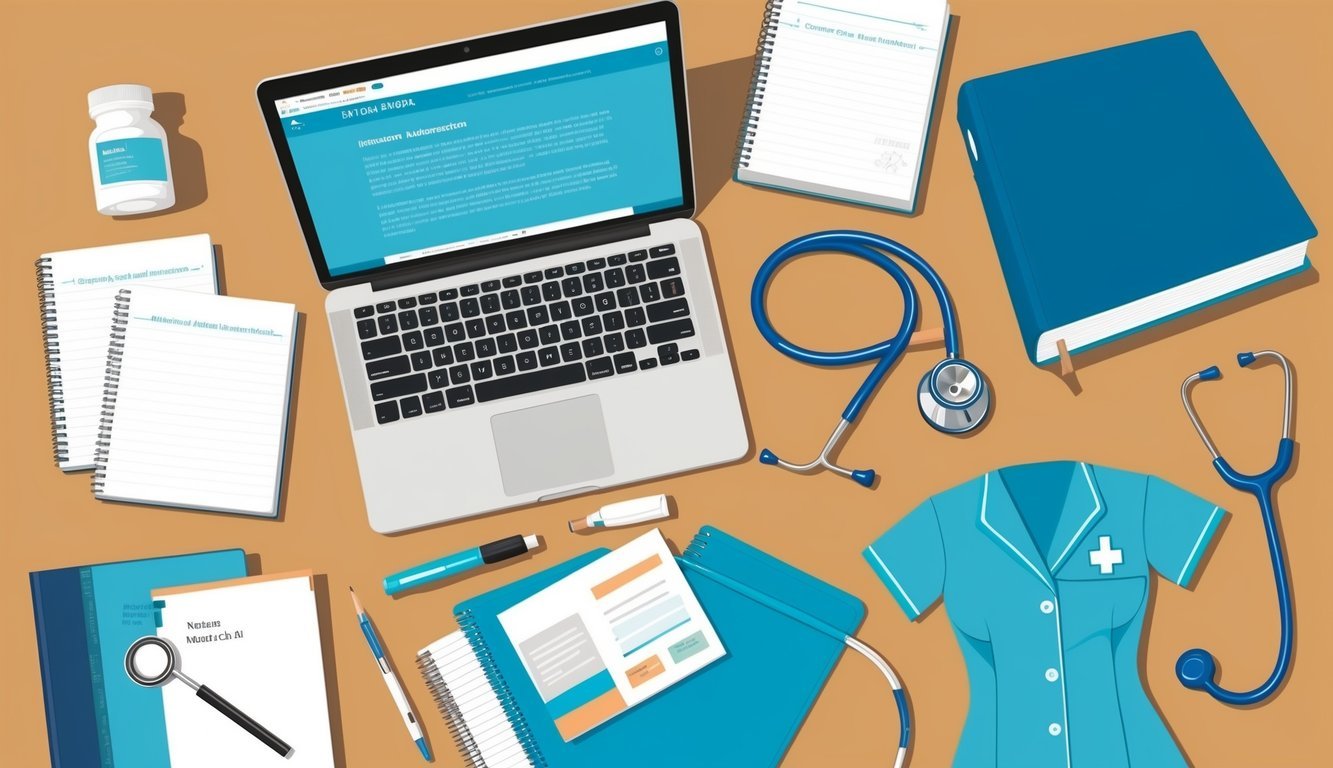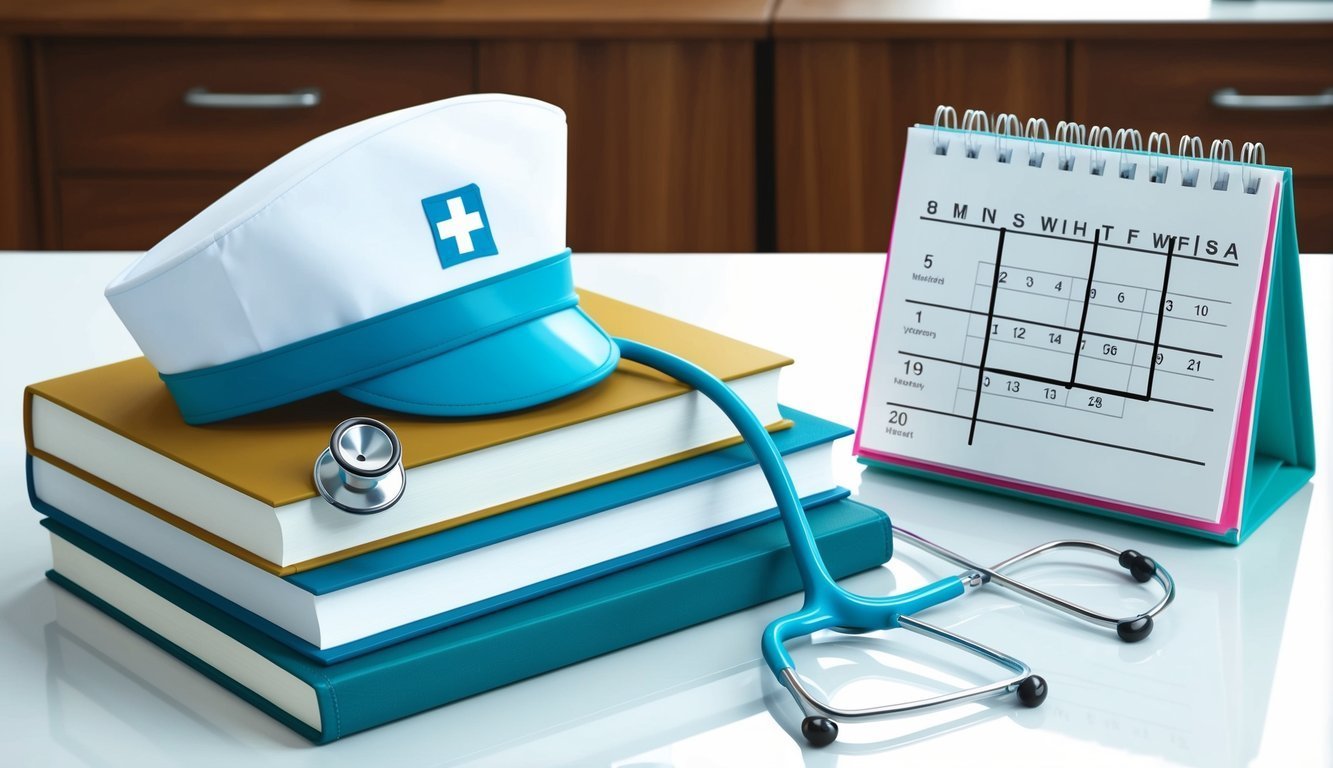The transition from a Licensed Practical Nurse (LPN) to a Registered Nurse (RN) can significantly enhance your career opportunities and earning potential. A 6-month LPN to RN program offers a fast-tracked pathway to achieving this goal, allowing you to become a registered nurse in less than a year. These programs are designed to build on your existing nursing knowledge while providing the additional skills and clinical experience needed to excel in a more advanced nursing role.
In these intensive programs, coursework typically includes both theoretical learning and hands-on clinical training.
Whether you prefer an online format or a traditional classroom setting, options are available that cater to your needs.
You will benefit from a structured curriculum focused on essential nursing practices and patient care, equipping you to handle the complexities of modern healthcare.
Exploring your options will help you find a program that fits your schedule and career aspirations.
Many institutions now offer flexible formats, including evening and weekend classes, so you can continue to work while you study.
For more detailed comparisons of these opportunities, check out resources that highlight various programs, such as Nursing Process or Nurse.org.
Understanding LPN to RN Programs
LPN to RN programs provide a pathway for licensed practical nurses to advance their careers and education.
These programs vary in type, structure, and length, allowing you to choose the option that best fits your circumstances and goals.
Types of Bridge Programs
There are primarily two types of LPN to RN bridge programs: the LPN to ADN (Associate Degree in Nursing) and the LPN to BSN (Bachelor of Science in Nursing).
| Program Type | Degree Offered | Typical Duration | Focus Areas |
|---|---|---|---|
| LPN to ADN | Associate Degree | 1-2 years | Clinical practice, nursing theory |
| LPN to BSN | Bachelor’s Degree | 2-3 years | Advanced nursing, leadership, research |
Choosing between an ADN and BSN program may depend on your career aspirations.
An ADN allows you to become an RN quickly, while a BSN may open doors for leadership and specialty roles.
Online vs. Traditional Pathways
When considering LPN to RN programs, you have the option of online and traditional formats.
Online Programs:
- Flexibility in scheduling
- Ideal for working nurses
- Theoretical components are often fully online
Traditional Programs:
- Structured classroom setting
- More hands-on experience during clinicals
- Immediate feedback from instructors
Many online LPN to RN programs cover theoretical nursing concepts, while traditional pathways offer a more immersive learning experience.
Both formats require clinical rotations to gain practical skills.
Program Length and Curriculum
The length of LPN to RN programs can vary.
- Accelerated Bridge Programs: These typically take about 6 months if you’re studying full-time.
- Standard Programs: May last 12-24 months, depending on the degree.
Curriculum components often include:
- Nursing theory and ethics
- Pharmacology
- Pathophysiology
- Clinical practice hours
It’s essential to review individual program requirements of the LPN to RN bridge programs you’re considering.
This will ensure you meet the prerequisites and understand the academic load involved.
Admission Criteria and Preparation

When considering admission to a 6-month LPN to RN program, it is essential to understand the specific criteria and preparation steps involved.
Meeting educational prerequisites, demonstrating professional experience, and fulfilling health requirements are crucial elements for your successful application.
Educational Prerequisites
To apply for a 6-month LPN to RN program, you typically need either a high school diploma or a GED.
You must also hold an active LPN license in good standing.
Many programs require completion of specific courses, such as anatomy and physiology, prior to enrollment.
Some institutions may also require standardized test scores.
The TEAS (Test of Essential Academic Skills) is commonly used to assess your readiness for nursing coursework.
Preparing for this exam can significantly improve your chances of admission.
Professional Experience and References
Your professional experience as an LPN plays a vital role in the admission process.
Programs often expect you to have hands-on nursing experience.
This background demonstrates your familiarity with patient care and medical environments.
Additionally, most programs require you to submit professional references.
These should ideally come from supervisors or colleagues who can vouch for your skills and work ethic.
Be sure to choose references who are aware of your capabilities in a healthcare setting.
Standardized Testing and Health Requirements
Many programs mandate standardized testing as part of the admission criteria.
As previously mentioned, the TEAS exam is a common requirement.
Prepare thoroughly to meet the minimum score needed for consideration.
Health requirements often include a recent drug screening and proof of immunizations, such as MMR or Hepatitis B. You may also need to complete a CPR certification course.
Finally, a criminal background check is usually a standard part of the application process to ensure the safety of patients in clinical settings.
Staying informed about these criteria will help streamline your application process and enhance your readiness for the program.
Clinical and Theoretical Foundation
A strong clinical and theoretical foundation is essential for your transition from LPN to RN.
This section highlights the importance of laboratory learning and hands-on clinical experiences that bridge the gap between nursing theory and practice.
Laboratory and Simulation Learning
In your program, you will engage in laboratory and simulation learning that provides a safe environment to practice nursing skills.
Simulation labs replicate real-world scenarios, allowing you to apply nursing theory and practice critical thinking.
Common areas of focus include:
- Nursing Skills: You will practice essential skills such as wound care, medication administration, and intravenous therapy.
- Pharmacology: Mastering advanced pharmacology helps you manage medications effectively, improving patient outcomes.
- Pathophysiology: Gaining knowledge in this area allows you to understand disease processes and apply evidence-based practices in patient care.
Hands-on practice in simulation labs helps reinforce your learning and builds confidence before you enter actual healthcare settings.
Clinical Practicums and Rotations
Your clinical practicums and rotations will be integral to your education.
These experiences provide valuable opportunities to apply theoretical knowledge in real healthcare environments.
During your clinical time, you will:
- Work in Healthcare Facilities: Engage in various settings, including medical-surgical nursing and community health, which prepares you for diverse patient populations.
- Participate in Clinical Rotations: Gain exposure to different specialties, enhancing your skill set and understanding of nursing care across the lifespan.
- Receive feedback from experienced RN mentors, which improves your clinical training and ensures adherence to nursing standards.
These practicum experiences are vital for developing your clinical judgment and preparing you for your future nursing career.
Exam Preparation and Licensure
As you transition from an LPN to an RN, understanding the requirements for exam preparation and licensure is essential.
The licensure process includes passing the NCLEX-RN exam and meeting state-specific requirements to obtain your RN license.
NCLEX-RN Exam Focus
The NCLEX-RN exam is a significant milestone in your nursing career.
This exam tests your knowledge and skills in areas such as:
- Safe and Effective Care Environment
- Health Promotion and Maintenance
- Psychosocial Integrity
- Physiological Integrity
To prepare effectively, you should utilize a variety of study resources.
Consider enrolling in NCLEX review courses, using practice tests, and engaging with study groups.
Familiarizing yourself with the format and types of questions on the NCLEX-RN will enhance your confidence.
Many programs include NCLEX preparation assessments that focus on critical thinking and nursing knowledge crucial for success in the healthcare field.
Transitioning to Registered Nurse Status
After successfully passing the NCLEX-RN, you will need to apply for an RN license in your state.
This process typically involves:
- Submitting an Application: Complete the application form specific to your state’s nursing board.
- Providing Documentation: Submit proof of graduation from an accredited nursing program and your NCLEX results.
- Background Check: Undergo a criminal background check, which is a standard procedure for all nursing applicants.
Once you receive your RN license, you can begin working as a registered nurse, enjoying the increased responsibilities and opportunities that come with the role.
For more information on the NCLEX exam, visit the National Council of State Boards of Nursing for resources and guidelines related to your licensure journey.
Advancement and Opportunities Post-Graduation

Upon completing a 6-month LPN to RN program, you open the door to various career advancements and educational opportunities.
This transition not only enhances your professional credentials but also significantly impacts your earning potential and areas of specialization.
Career Trajectory and Salary Implications
As a newly graduated RN, you will find yourself on a promising career trajectory.
Registered Nurses typically earn a higher salary compared to LPNs, with a median annual income of about $86,000 versus an LPN salary of around $59,000.
| Role | Median Salary |
|---|---|
| LPN | $59,000 |
| RN | $86,000 |
Your responsibilities will expand in areas such as patient care, healthcare ethics, and nursing practice.
Experience gained in clinical settings during your program will enhance your professional references, making you a more competitive candidate for positions in hospitals, clinics, and other healthcare facilities.
Hybrid programs, such as those offered by Highland Community College, often provide essential hands-on training that helps you transition smoothly into the RN role.
Continued Education and Specializations
Continued education can further enrich your nursing career after you become an RN.
Many RNs pursue advanced nursing concepts through bachelor’s or master’s degree programs.
These programs allow you to specialize in high-demand fields such as nurse practitioner, nurse anesthetist, or clinical nurse specialist.
Choosing a program that offers flexibility can be crucial.
Institutions like Rasmussen University and Ohio University provide options for advanced degrees that align with your professional development goals.
Specializing can also increase your earning potential and job stability.
According to studies, RNs in specialized roles often enjoy salaries surpassing the average RN salary.
By accumulating general education credits and additional nursing certificates, you position yourself as an asset to any healthcare team.

